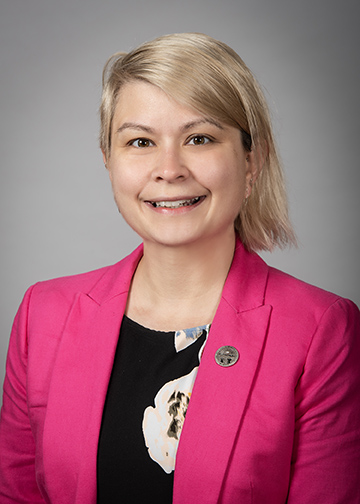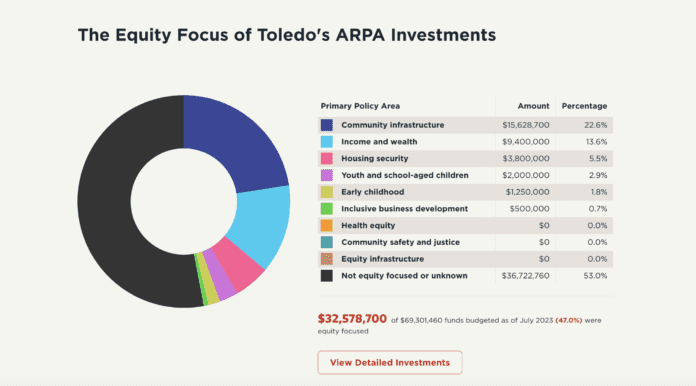American Rescue Plan helped relieve medical debt
TOLEDO – When President Joe Biden signed the American Rescue Plan (ARPA) into law on March 11, 2021, it provided financial aid to Americans during the COVID-19 pandemic. The Economic Development Administration was given $3 billion in funds to distribute to American communities.
Once the money was in the hands of the cities, it was up to them to distribute the funding throughout their communities. Toledo was one of the cities who participated in that equity spending.
Among the key uses of ARPA’s money was the abolishment of $72 million in medical debt for 43,000 Toledo residents, $230 million for 113,000 Lucas County residents, and the metropolitan region served by Toledo’s hospitals.
Michele Grim, a former Toledo City councilwoman, led the effort to allocate ARPA funds to medical debt before becoming a member of the state House of Representatives in 2023.

In a Sept. 24 news story, Grim said: “While serving on Toledo City Council as an at-large member, I was immensely proud to lead the charge on abolishing $230 million in medical debt for more 100,000 people in northwest Ohio.
“This project, among many other ARPA funded services, has now been identified as some of the most successful equitable efforts in the nation. I am encouraged to continue these efforts at the state level and deliver real solutions for Ohioans.
“Medical debt is the number one reason people go into bankruptcy, even though people may have health insurance,” Grim added. “Health insurance still does not cover everything. Some people have high premiums, that kind of thing. You don’t plan on getting sick; you don’t plan on breaking a leg.
“We’re the only industrialized country that lets people go into debt for medical bills, and it’s important for people to support medical debt relief because it does help people go back to the doctor and it relieves those costs.”

A new multiyear study conducted by the Institute on Race, Power and Political Economy at The New School in New York City identified Toledo as a leader in investing federal funds from the ARPA. Toledo scored in the top third of 170 U.S. cities and counties evaluated by the institute’s Budget Equity Project, which examined how local governments across the U.S. are investing flexible recovery funds from ARPA to support racial and economic equity in their communities.
Sarah Treuhaft, senior director of policy and partnerships at the Institute, co-authored the report. She explained what The New School was looking for when it conducted the survey and realized the ARPA money was in the hands of mayors and council members to be distributed at their discretion.
“We wanted to follow the money, and realized that cities and counties used the funds to support those who were most impacted by the pandemic and inequities that preceded the pandemic and was exacerbated by it,” she said.
Treuhaft said Toledo performed well, and that the money was used for its intended purpose. By June of 2023, 20 of the city’s 27 approved projects would promote equity. Projects included lead pipe removal, roof repair and the elimination of medical debt.
The Institute's report found that $32,578,700 (47%) of the $69,301,460 funds budgeted as of July 2023 were equity-focused.





















